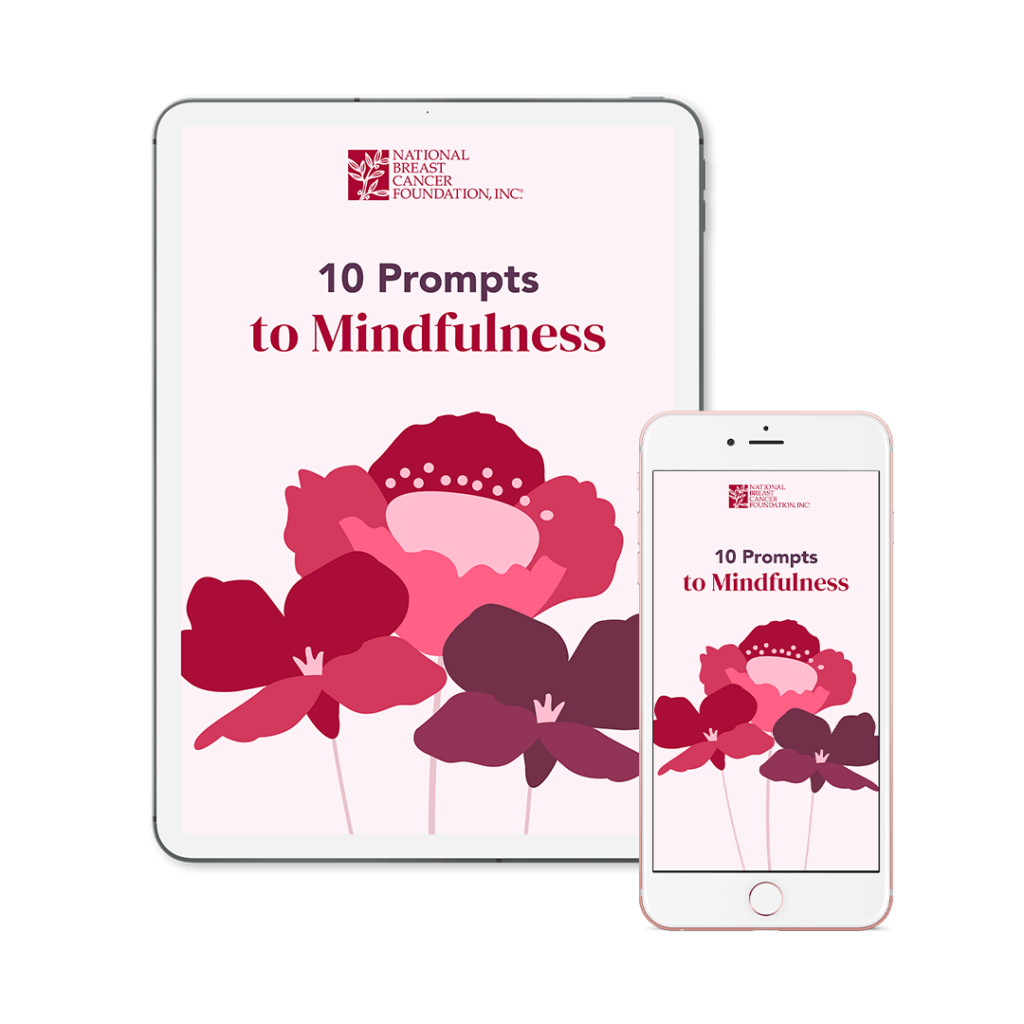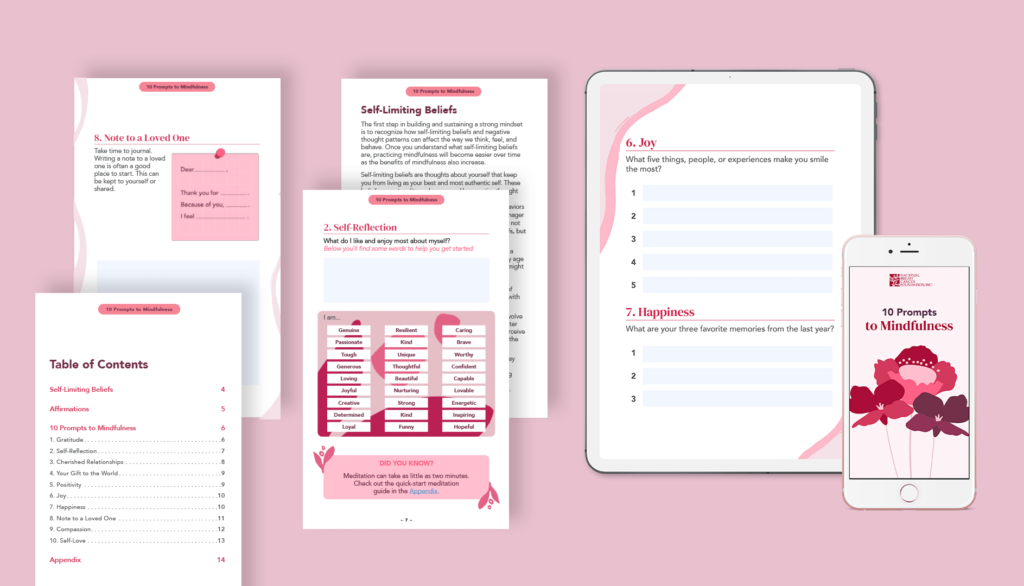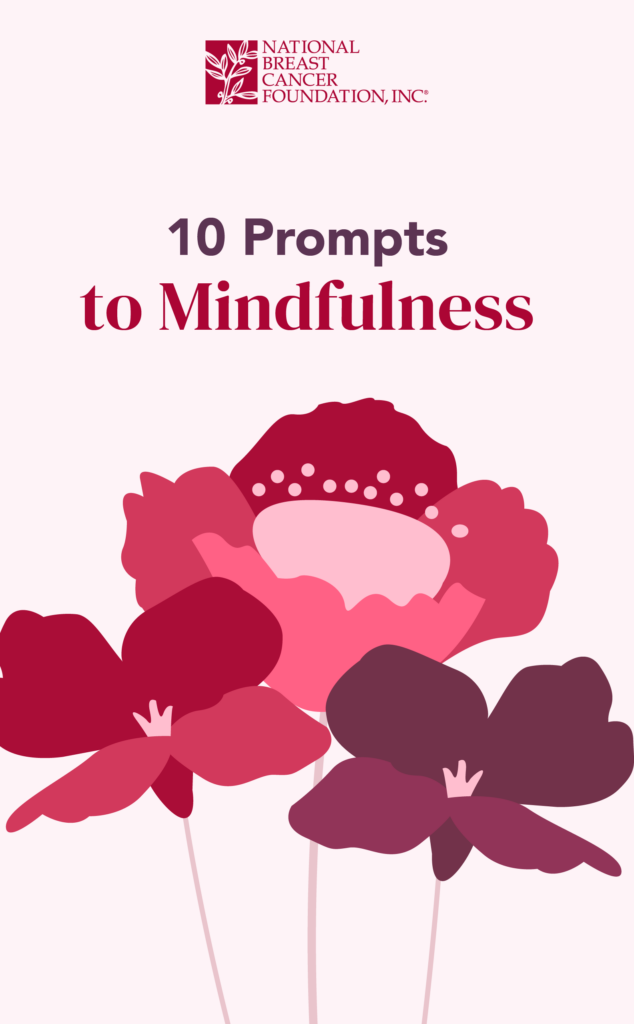10 Prompts to Mindfulness
Strengthen your mind-body connection
You are NOT your thoughts.
This can be difficult to remember when you get frustrated or overwhelmed, but it is an important distinction to make. Whether you are a cancer patient, survivor, caregiver, loved one, or simply looking to strengthen your mind-body connection, practicing mindfulness can help you center your thoughts and bring you back to contentment.
Thanks to the beauty of mindfulness, you can reinvigorate your thoughts and beliefs about who you are and what you are capable of.

What is mindfulness?
Mindfulness is being fully present in the moment, and aware of your thoughts, feelings, and environment in a nurturing way. It involves accepting your feelings and thoughts without judgment and focusing on the present moment, rather than the past or future.
There is a powerful connection between mental health and physical health—a true mind and body connection—and a strong mindset can make a tremendous difference during life’s challenges.
In our free guide, 10 Prompts to Mindfulness, you’ll receive:
- Information on self-limiting beliefs and how to overcome them
- Encouraging affirmations for everyday use
- Short prompts that incorporate gratitude, reflection, compassion, self-love, and more
- Tips on beginning a meditation or guided breathing practice to support your mental, emotional, and physical health
Here’s a sneak peek of what’s inside the free guide:

What our community is saying:
“This ebook on mindfulness is wonderful! It’s written in the most clear & helpful manner of anything I’ve read regarding this topic. Thank you! I plan to share it with my support group.” – Ardie
“This eBook has been very helpful as it gives me food for thought when I do my journal… The affirmations help a lot – they speak volumes to how I feel on a given day so thank you. As I post this message to you, I am inspired, pleased, and very happy with my eBook and your encouraging words.” – Edrena
“Thank you; the material is very informative as well as helpful. I find it helpful despite not having breast cancer. This eBook is for anyone dealing with life and its struggles.” – Kevin
Where can we send your free guide?

The concepts in this guide are non-medical in nature and are intended for supplementary purposes only. Practicing mindfulness should not take the place of recommendations from your medical care team. If you are experiencing a mental health challenge or crisis, please seek immediate help from a doctor or mental health professional, or call 988.

